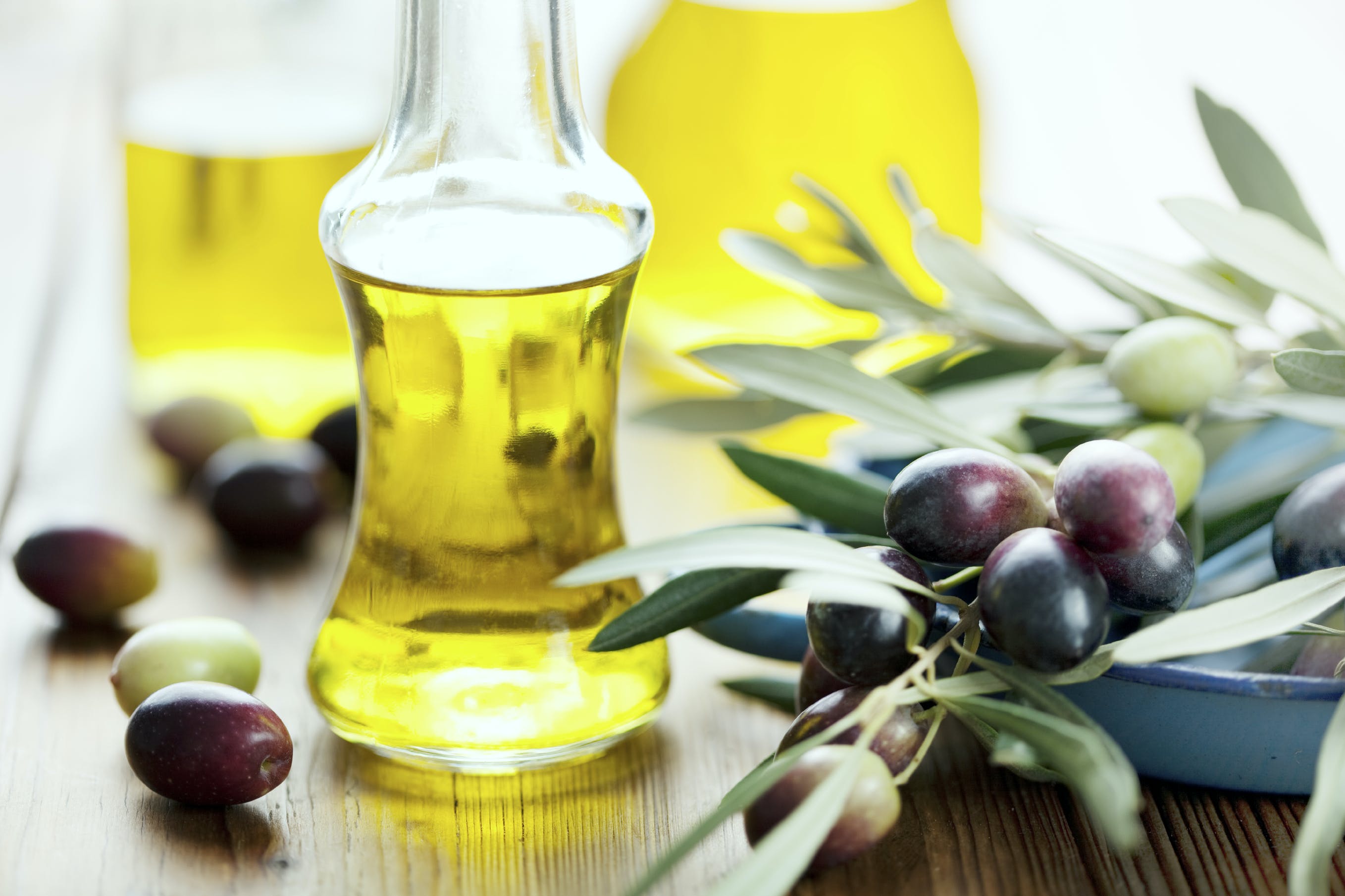Most of us know olive oil is good for our health, but there are other oils and fats we can also benefit from. The important thing to remember is that an excessive amount of any fats, good or bad, can lead to weight gain and inflammation. So with that in mind, here’s a quick rundown of a variety of oils and fats that we find in the things we eat.
Saturated Fats
You want to try limiting your consumption of saturated fats found in animal products like egg yolks, lard, butter, whole milk, other dairy products, fatty beef, pork, and poultry (especially the skin). However, saturated fats from sources like coconut oil, palm oil, palm kernel oil, cocoa butter, and tropical oils can have some benefits.
Virgin coconut oil, for example, contains lauric acid, which can be converted into compounds with antiviral and antibacterial properties. Even with beneficial properties, your consumption of saturated fats needs to be monitored. While it is said that coconut oil can aid in weight loss, don’t be so quick to add large amounts of it to your diet. Studies have shown that both HDL and LDL cholesterol rose when coconut oil was consumed, suggesting that we should not be using it beyond the daily recommended amount.
The daily recommend intake of saturated fat is about 11-13g, or about 1 tablespoon of coconut oil. An alternative can be one small avocado, which contains only 4.3g of saturated fat. Still, the wrong types of products, like certain coconut oil products, may increase heart disease, so be sure to read the labels and know which type is the most beneficial.
Polyunsaturated Fats
Polyunsaturated fats found in corn, safflower, soybean, and sunflower have been known to lower cholesterol when substituted for saturated fats. A number of studies showed that intermittent use of polyunsaturated fats can increase the rate at which “bad” LDL cholesterol drops, which is good. However, excessive consumption can increase the rate of free radical formation in the body which increases the risk of cancers and inflammation.
Monounsaturated Fats
Monounsaturated oils include olive, canola, peanut, and grape seed oils. Nuts and seeds like hazelnuts, pistachios, peanuts, and sesame seeds fall into this category, as well. Olives and avocados are other sources of monounsaturated fats.
Like polyunsaturated fats, monounsaturated fats can lower LDL cholesterol. However, they are still both fats and should be eaten in moderation. Some research shows that polyunsaturated fats can actually cause inflammation to occur faster than other oils do.
Another thing to note is that animals store pesticides and other environmental pollutants in their fat. That, combined with the methods used to process farmed animals and fish, means that we could be consuming pollutants that have been banned as far back as 40 years ago! To avoid putting some of these pollutants in your body, it might be best to consider a mainly plant-based diet.
The main takeaway is to be mindful of which fats are going into your body and remain aware of just how much fat you should be consuming. As they say, knowledge is power, so the more you know, the healthier you'll be!
Nutritional information
Recipe: Creamy Green Strawberry Dream Serving in this recipe:1
- Calories: 236.6
- Total Fat: 3.6 g 5.5%
- Saturated Fat: 0.4 g 1.9%
- Cholesterol: 0 mg 0%
- Sodium: 358.7 mg 14.9%
- Total Carbs: 45.7 g 15.2%
- Dietary Fiber: 9.9 g 39.4%
- Sugar: 22.1 g
- Protein: 8.1 g 16.2%
- Vitamin A: 481.9% Vitamin C: 244.1%
- Calcium: 68.5% Iron: 26.1%
* Percent Daily Values are based on a 2,000 calorie diet. Your daily values may be higher or lower depending on your calorie needs.




























